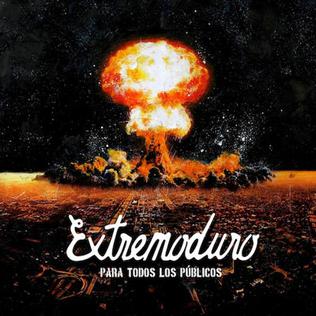A patronymic, or patronym, is a component of a personal name based on the given name of one's father, grandfather (avonymic), or an earlier male ancestor. A component of a name based on the name of one's mother or a female ancestor is a matronymic. A name based on the name of one's child is a teknonymic or paedonymic. Each is a means of conveying lineage.

In some cultures, a surname, family name, or last name is the portion of one's personal name that indicates their family, tribe or community.
Spanish naming customs are historical traditions that are practised in Spain for naming children. According to these customs, a person's name consists of a given name followed by two surnames. Historically, the first surname was the father's first surname, and the second the mother's first surname. In recent years, the order of the surnames in a family is decided when registering the first child, but the traditional order is still usually chosen. Often, the practice is to use one given name and the first surname most of the time ; the complete name is typically reserved for legal, formal, and documentary matters. Both surnames are sometimes systematically used when the first surname is very common to get a more customized name. In these cases, it is even common to use only the second surname, as in "Lorca", "Picasso" or "Zapatero". This does not affect alphabetization: "Lorca", the Spanish poet, must be alphabetized in an index under "García Lorca", not "Lorca" or "García".
Pérez, or Perez as most commonly written in English, is a Castilian Spanish surname. Perez is also common in people of Sephardic Jewish descent and is the 4th most common surname in Israel, most common surname not of Hebrew origin and most common surname exclusive to a single Jewish ethnic division.
In the Western tradition of surnames, there are several types of double surname. If the two names are joined with a hyphen, it may also be called a hyphenated surname. The word "barrel" probably refers to the barrel of a shotgun, as in "double-barreled shotgun".
Filipinos have various naming customs. They most commonly blend the older Spanish system and Anglo-American conventions, where there is a distinction between the "Christian name" and the "surname". The construct containing several middle names is common to all systems, but having multiple "first" names and only one middle and last name is a result of the blending of American and Spanish naming customs. The Tagalog language is one of the few national languages in Asia to practically use the Western name order while formally using the eastern name order. The Philippine naming custom is identical to the Spanish and Portuguese name customs and, to an extent, Chinese naming customs.

Chenoa is the debut album from Spanish artist Chenoa, recorded in Miami, Madrid, London, Bratislava and Milan at the months of March and April 2002, after she left the Operación Triunfo academy as the fourth finalist.
Javier Etxaniz Peña is a Basque slalom canoer who competed in the early to mid-1990s. He finished 22nd in the K-1 event both at the 1992 and the 1996 Summer Olympics.
Josu Etxaniz Irazabal is a Spanish footballer who plays as a central defender.

La ley innata is the ninth studio album by Spanish hard rock band Extremoduro. It was produced by Iñaki "Uoho" Antón and published by Warner Music on 9 September 2008.

Para Todos los Públicos is the eleventh studio album by Spanish hard rock band Extremoduro, released on 8 November 2013. It was produced by Iñaki "Uoho" Antón, The album's recording started at early 2012 and it was finished at spring of 2013. It was published by Warner Music on 8 November 2013. The first single "¡Qué Borde Era Mi Valle!" was released on 22 October 2013. The album release date was initially scheduled for 19 November 2013 but the album was illegally leaked.

López is a surname of Spanish origin. It was originally a patronymic, meaning "Son of Lope", Lope itself being a Spanish given name deriving from Latin lupus, meaning "wolf". The surname is first attested in Old Castile in the heart of Spain, where the name originated in Visigothic times; however, the name is not of Germanic origin. Its Portuguese equivalent is Lopes, its Italian equivalent is Lupo, its French equivalent is Loup, its Romanian equivalent is Lupu or Lupescu and its Catalan and Valencian equivalent is Llopis.
Tona, Toña, Toňa and Tóna are given names. Tona is a Danish, Norwegian, Spanish and Swedish feminine given name in use in Denmark, Greenland, Sweden, Norway, Spain, parts of the United States, Mexico, Cuba, Dominican Republic, Guatemala, Honduras, El Salvador, Nicaragua, Costa Rica, Western Panama, Colombia, Venezuela, Peru, Ecuador, Bolivia, Chile, Paraguay, Argentina, Uruguay, and the Falkland Islands. The name is a short form of Antonia as well as an alternate form of Þone. Tona is also a Danish, Norwegian and Swedish feminine given name in use in Denmark, Greenland, Sweden, and Norway as a short form of Antona as well as an alternate form of Tone and Torny. Tóna is a Faroese feminine given name that is an alternate form of Tona, Tone and Torny. Toña is a Spanish feminine given name that is a short form of Antonia used in Spain, parts of the United States, Mexico, Cuba, Dominican Republic, Guatemala, Honduras, El Salvador, Nicaragua, Costa Rica, Western Panama, Colombia, Venezuela, Peru, Ecuador, Bolivia, Chile, Paraguay, Argentina, Uruguay, and the Falkland Islands. Toňa is a Czech masculine given name that is a diminutive form of Antonín used in the Czech Republic. It is also a surname. Notable people with this name include the following:
Tonin or Toñín is a masculine given name and a surname. Toñín is a Spanish masculine given name and nickname that is a diminutive form of Antonio in use in Spain, parts of the United States, Mexico, Cuba, Dominican Republic, Guatemala, Honduras, El Salvador, Nicaragua, Costa Rica, Western Panama, Colombia, Venezuela, Peru, Ecuador, Bolivia, Chile, Paraguay, Argentina, Uruguay, and the Falkland Islands. Notable people with this name include the following:
Tono or Toño is a masculine given name or nickname that is a dimutive form. Tono is a Catalan, Galician and Spanish diminutive form of Anton, Antoni and Antonio and Toño is a Spanish diminutive form of Antonio. Both spellings are in use in Spain, parts of the United States, Mexico, Cuba, Dominican Republic, Guatemala, Honduras, El Salvador, Nicaragua, Costa Rica, Western Panama, Colombia, Venezuela, Peru, Ecuador, Bolivia, Chile, Paraguay, Argentina, Uruguay, and the Falkland Islands, while Tōno is a japanese surname.
Karlos is a Basque masculine given name. Notable people referred to by this name include the following
Cari is an English and Spanish feminine given name and surname. As an English given name, Cari is diminutive form of Caroline and an alternate form of Carrie both derived from Karl. Cari is a Spanish given name that is a short form of Caridad, a derivative of Caritas. Notable people referred to by this name include the following:
Carles is a Catalan given name of Germanic origin that is a form of Charles. It is also a surname. Notable people with this name include the following:
Calle is a Danish, Finnish, Norwegian and Swedish masculine given name, nickname and surname that is a diminutive form of Carl and Karl and an alternate form of Kalle. Calle is a surname with Spanish, English, Irish, Scottish, and German origins. Its Spanish origins are from the Spanish word calle, which means street and traces its origins back to Santander, Spain. a derive Notable people referred to by this name include the following:




